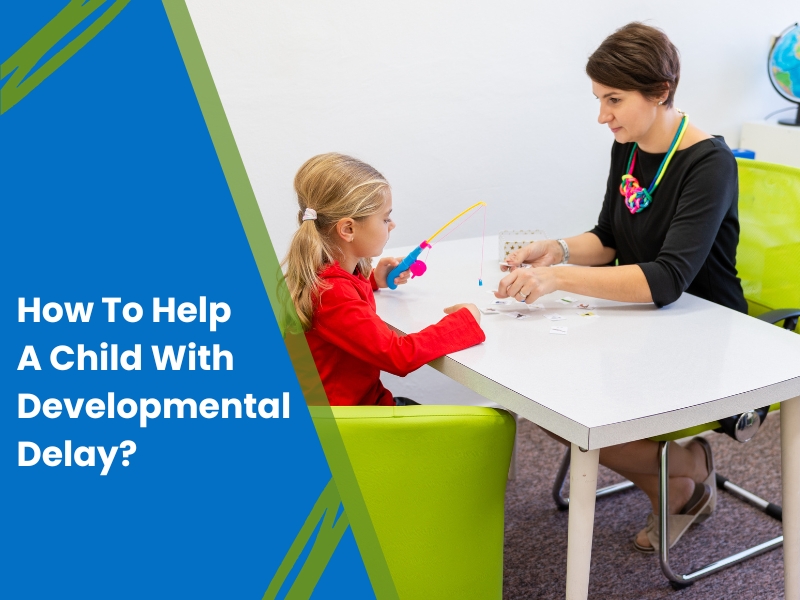Developmental delay occurs when a child does not meet certain developmental milestones at the expected age. It can affect various areas, including physical, cognitive, social, and emotional development. While seeing your child facing developmental challenges can be challenging, you can support them in many ways. This article will explore common signs, causes, and practical strategies for how to help a child with developmental delay thrive.
What are the common signs of a child with developmental delay?
Identifying developmental delays early can lead to more effective interventions. Here are some common symptoms to watch for:
- Delayed milestones: Delays in reaching age-appropriate milestones like walking, talking, or potty training.
- Difficulty with communication: Struggles with speaking, understanding instructions, or expressing needs.
- Challenges with motor skills: Problems with coordination, fine motor skills (like grasping objects), or gross motor skills (like running or jumping).
- Social and emotional difficulties: Trouble interacting with peers, expressing emotions, or adapting to new situations.
- Cognitive delays: Difficulty with problem-solving, following directions, or understanding concepts.
Recognising these signs early can help you understand developmental delay and seek appropriate support and interventions.
What causes developmental delay?
Developmental delays can arise from a variety of factors. Understanding the causes can help find the right approach to support your child. Common causes include:
- Genetic factors: Conditions such as Down syndrome or Fragile X syndrome that can affect development.
- Prenatal and birth factors: Complications during pregnancy, birth injuries, or premature birth.
- Environmental factors: Exposure to toxins, malnutrition, or a lack of stimulating experiences during critical developmental periods.
- Medical conditions: Chronic illnesses, neurological disorders, or sensory impairments that impact development.
- Family history: A family history of developmental delays or related conditions.
Identifying the cause can assist in tailoring interventions to help a child with developmental delay.
What strategies can you use to support your child with developmental delay at home?
Supporting your child at home is crucial for their development. Here are some strategies to help:
- Create a routine: Establish a consistent daily routine for stability and predictability.
- Encourage communication: Use simple, straightforward language and encourage your child to express themselves through words, gestures, or pictures.
- Promote social interaction: Provide opportunities for your child to interact with peers in a safe and supportive environment.

- Offer sensory activities: Engage in activities stimulating the senses, such as playing with textured materials or listening to music.
- Set realistic goals: Break down tasks into manageable steps and celebrate small achievements to build confidence.
These strategies can enhance your child’s development and well-being.
How can you collaborate with healthcare professionals to help your child?
Working with healthcare professionals can provide valuable insights and support. Here’s how to effectively collaborate:
- Share observations: Provide detailed information about your child’s behaviours, challenges, and progress.
- Follow recommendations: Adhere to professionals’ advice and strategies, including therapists and specialists.
- Ask questions: Seek clarification on any aspects of your child’s treatment or therapy to ensure you fully understand their needs.
- Set goals together: Work with professionals to set realistic and achievable goals for your child’s development.
- Monitor progress: Regularly review progress with professionals and adjust strategies as needed.
Collaboration ensures that your child receives comprehensive and coordinated support.
What types of therapies are effective for a child with developmental delay?
Several therapies can be beneficial for children with developmental delays. Each type addresses different aspects of development:
- Speech therapy: Helps with communication skills, including articulation, comprehension, and social communication.
- Occupational therapy: Focuses on improving fine motor skills, sensory processing, and daily living activities.
- Physical therapy: Aim to enhance gross motor skills, coordination, and physical strength.
- Behavioural therapy: Addresses behavioural issues and promotes positive behaviour through structured interventions.
- Early childhood intervention: Provides support for younger children to address developmental delays early on.
Choosing the right therapy depends on your child’s specific needs and challenges.
What role does occupational therapy play in supporting developmental delays?
Occupational therapy for developmental delay is crucial in helping children with developmental delays achieve their full potential. Key aspects include:
- Skill development: Focuses on improving daily living skills such as dressing, eating, and using the toilet.
- Sensory integration: Helps children process and respond to sensory information effectively, which can be especially important for those with sensory processing issues.
- Fine motor skills: Assists in developing skills like grasping, writing, and manipulating small objects.
- Adaptive strategies: Provides techniques and tools to help children manage tasks that may be challenging due to their developmental delay.

Occupational therapy offers personalised strategies to support your child’s unique needs and abilities.
How can you create a supportive learning environment for your child with developmental delay?
Creating a positive and supportive learning environment can significantly help a child with developmental delay. Consider these tips:
- Foster a positive atmosphere: Use encouragement and praise to build your child’s confidence and motivation.
- Provide structured activities: Use organised and predictable activities to help your child understand expectations and routines.
- Adapt learning materials: Modify materials and methods to suit your child’s learning style and needs.
- Create a comfortable space: Ensure that your child’s learning environment is safe, quiet, and free from distractions.
- Encourage independence: Gradually encourage your child to take on tasks independently while providing support as needed.
A supportive environment can enhance your child’s learning and development.
How can you track and measure progress in your child’s development?
Monitoring your child’s progress is essential for understanding their growth and adjusting support strategies. Here’s how to effectively track development:
- Set clear goals: Establish specific, measurable goals for your child’s development.
- Use checklists: Employ developmental checklists to track milestones and achievements.
- Keep a journal: Document your child’s behaviours, progress, and any changes in their development.
- Regular assessments: Schedule periodic evaluations with healthcare professionals to assess progress and make necessary adjustments.
- Celebrate achievements: Acknowledge and celebrate your child’s successes to encourage continued progress.
Tracking progress helps identify areas of growth and areas needing further support.
Discover support at Auburn Health Centre
At Auburn Health Centre, we provide personalised care and support for children with developmental delays. Our team of experienced therapists offers various services, including speech therapy, occupational therapy, and early childhood intervention, tailored to your child’s needs. With flexible scheduling options and a compassionate approach, we support your family every step of the way.
For more information, contact Auburn Health Centre for developmental delay support. Let us partner with you to provide the best care and support for your child’s development.


